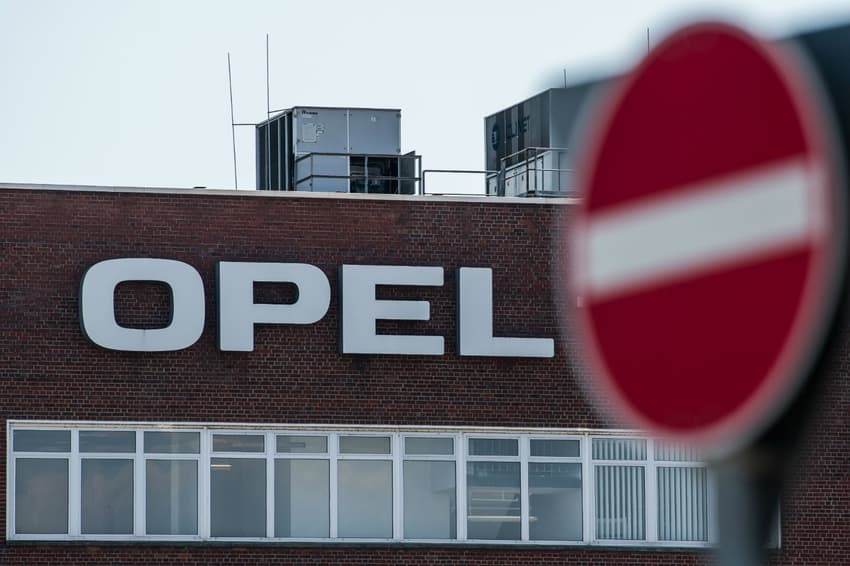Carmaker Opel announces 2,100 job cuts in Germany

Peugeot subsidiary Opel said
Tuesday it would offer 2,100 more German workers voluntary redundancies, as it struggles to stay afloat faced with collapsing demand and an EU emissions squeeze.
"The voluntary leave programme will be reopened for employees ... limited to a maximum of 2,100 positions," the company said in a statement.
But it added that forced redundancies would be ruled out until at least 2025.
Meanwhile Opel's main Rüsselsheim plant will be outfitted to produce the next generation Astra sedan in both internal combustion and hybrid versions -- "providing the perspective for many years of manufacturing".
READ ALSO: Germany orders recall of 43,000 Opel diesel vehicles
"This agreement creates a further considerable improvement of our competitiveness" and "gives our employees long-term security," chief executive Michael Lohscheller said.
The historic German carmaker, which Peugeot bought from US-based General Motors in 2017, had already slashed almost 7,000 out of 19,000 jobs since the takeover, as the industry grapples with lower global demand.
But rather than sales challenges, Opel highlighted "ever-stricter CO2 (carbon dioxide) regulations that the entire automotive industry is facing" as the main reason for Tuesday's move.
From this year, manufacturers in the EU must reach average CO2 emissions across their new vehicle fleets of below 95 grammes per kilometre, on pain of harsh fines.
After years of losses under GM, Opel returned to the black under its new owner in 2018, selling around a million vehicles.
Around 40,000 job cuts have already been announced by major German carmakers for the coming years -- half of those at Daimler and Audi alone -- as the industry scrambles to adapt to the changes, including a shift to less labour-intensive electric vehicles.
German car production fell to its lowest level in 22 years in 2019.
Comments
See Also
"The voluntary leave programme will be reopened for employees ... limited to a maximum of 2,100 positions," the company said in a statement.
But it added that forced redundancies would be ruled out until at least 2025.
Meanwhile Opel's main Rüsselsheim plant will be outfitted to produce the next generation Astra sedan in both internal combustion and hybrid versions -- "providing the perspective for many years of manufacturing".
READ ALSO: Germany orders recall of 43,000 Opel diesel vehicles
"This agreement creates a further considerable improvement of our competitiveness" and "gives our employees long-term security," chief executive Michael Lohscheller said.
The historic German carmaker, which Peugeot bought from US-based General Motors in 2017, had already slashed almost 7,000 out of 19,000 jobs since the takeover, as the industry grapples with lower global demand.
But rather than sales challenges, Opel highlighted "ever-stricter CO2 (carbon dioxide) regulations that the entire automotive industry is facing" as the main reason for Tuesday's move.
From this year, manufacturers in the EU must reach average CO2 emissions across their new vehicle fleets of below 95 grammes per kilometre, on pain of harsh fines.
After years of losses under GM, Opel returned to the black under its new owner in 2018, selling around a million vehicles.
Around 40,000 job cuts have already been announced by major German carmakers for the coming years -- half of those at Daimler and Audi alone -- as the industry scrambles to adapt to the changes, including a shift to less labour-intensive electric vehicles.
German car production fell to its lowest level in 22 years in 2019.
Join the conversation in our comments section below. Share your own views and experience and if you have a question or suggestion for our journalists then email us at [email protected].
Please keep comments civil, constructive and on topic – and make sure to read our terms of use before getting involved.
Please log in here to leave a comment.